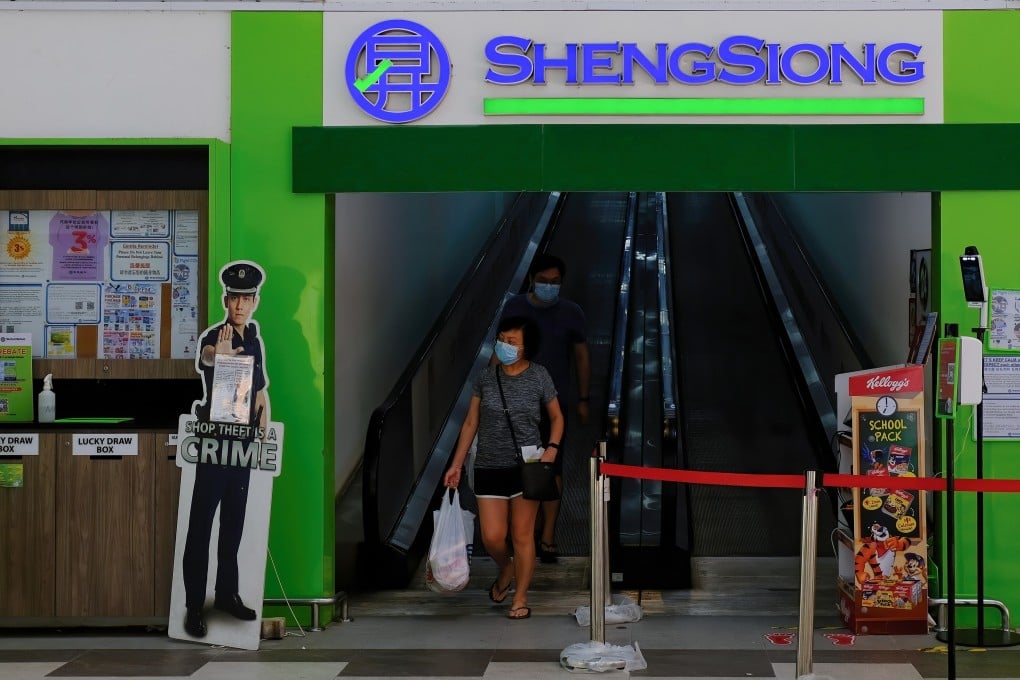How Singapore supermarket chain Sheng Siong’s local focus during coronavirus pandemic lifted its fortunes
- Singapore’s third-biggest supermarket chain made headlines by giving staff massive bonuses as revenues soared during the Covid-19 pandemic
- But its mass-market strategy means it is seen as a budget supermarket with lower quality products than competitors Cold Storage and NTUC Fairprice

When fresh meat and vegetables run low at home, part-time receptionist Linda Lim usually only has one supermarket in mind for grocery shopping: a Sheng Siong outlet just five minutes away by car.
For her, the no frills, home-grown supermarket chain checks all the boxes: it offers discounts to older shoppers, has a wide variety of low-priced products and even features a unique wet market-style butcher’s station where she can get a fresh piece of pork or whole chicken cut up to her liking.
But most important, the 61-year-old said, is the convenience. “Since it’s so close to home, I can drop by any time and I don’t have to carry so many heavy groceries at one go.”
Having a supermarket nearby that is open 24 hours is a huge allure, said Teresa Wong, a 62-year-old retiree who visits the same branch as Lim. “Grocery shopping has become very convenient. If I have a busy day, I can pop by at 10 or 11pm. You can’t do that at a wet market.”